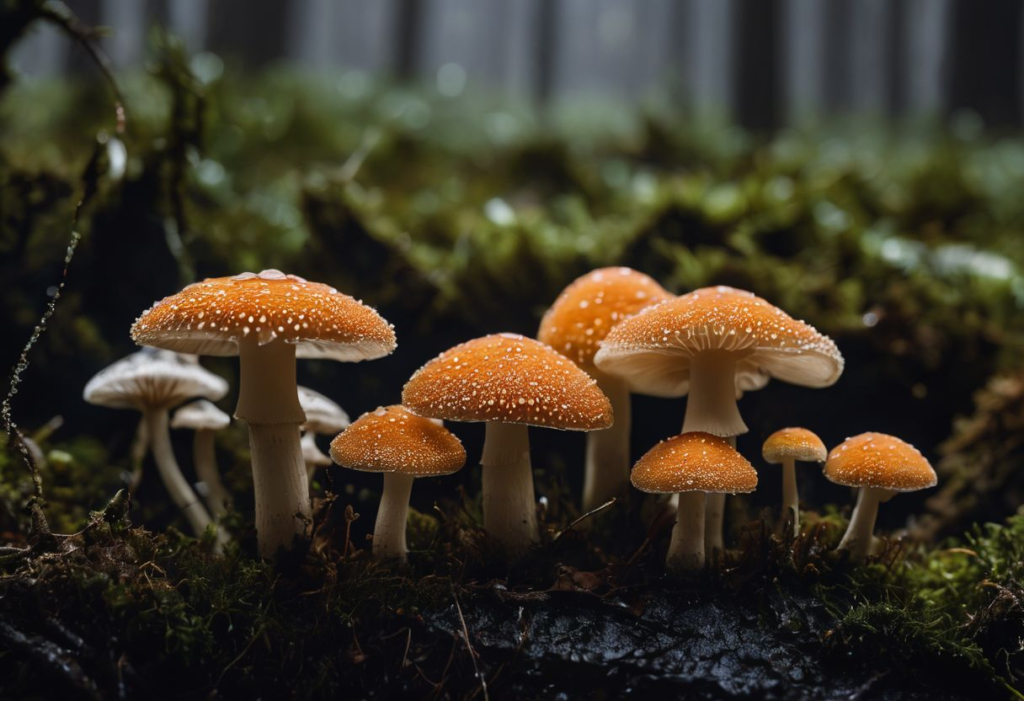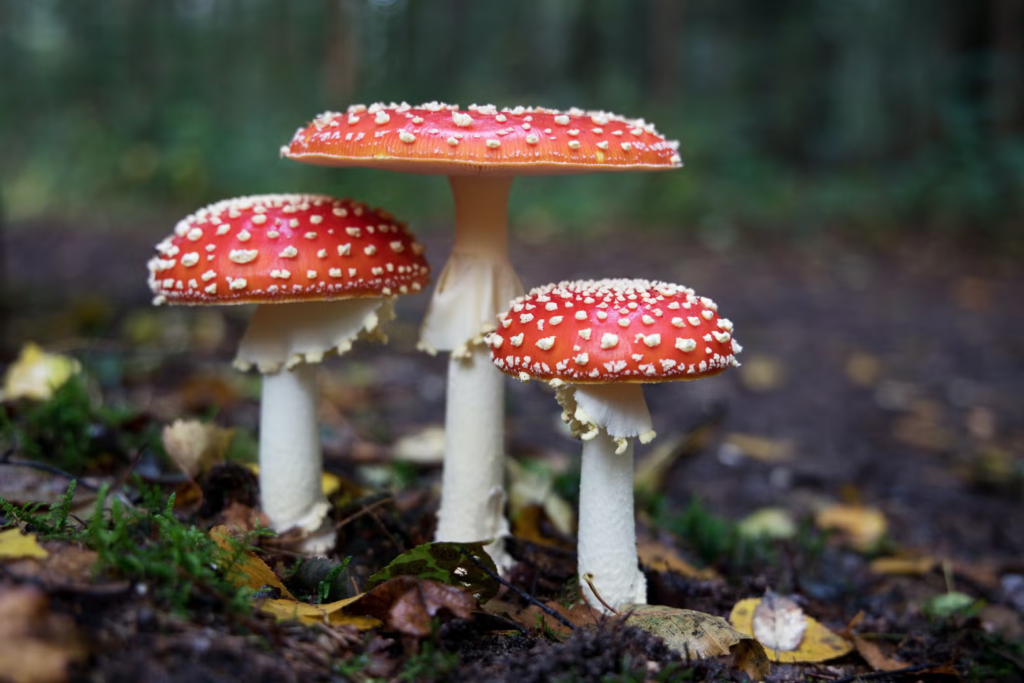
For centuries, mushrooms have occupied a curious space in human history. Neither plant nor animal, these peculiar fungi have been revered for their medicinal properties in some cultures, while feared as poisonous imposters in others.
But are mushrooms good for you? The answer, like many things in the world of mushrooms, is a resounding “it depends.” Buckle up, because we’re about to delve into the fascinating world of mushroom nutrition and explore the potential health benefits they offer.
A Nutritional Powerhouse in Disguise
Mushrooms may not be the most glamorous vegetable, but don’t let their unassuming appearance fool you. They are low in calories, fat-free, and cholesterol-free, making them a dieter’s dream. But their true strength lies in their hidden riches – a treasure trove of vitamins, minerals, and antioxidants.
- Vitamins and Minerals: Mushrooms are a surprising source of B vitamins, particularly riboflavin, niacin, and pantothenic acid, all essential for maintaining a healthy heart and nervous system. They also boast potassium, which helps regulate blood pressure, and selenium, a powerful antioxidant that protects cells from damage.
- Fiber Power: Mushrooms are a good source of dietary fiber, which keeps your digestive system running smoothly and can help manage blood sugar levels. Fiber also promotes feelings of satiety, keeping you fuller for longer.
- The Vitamin D Advantage: Unlike most vegetables, some mushroom varieties, especially when exposed to ultraviolet light during cultivation, become a powerhouse of vitamin D. This essential vitamin is crucial for bone health, immune function, and cell growth.
- Antioxidant Arsenal: Mushrooms are loaded with antioxidants, nature’s defense system against free radicals that damage cells and contribute to chronic diseases. These antioxidants may play a role in reducing the risk of heart disease, cancer, and even Alzheimer’s disease.
Unveiling the Health Benefits: Why Include Mushrooms in Your Diet?

Beyond their impressive nutritional profile, mushrooms offer a range of potential health benefits:
- Boosting Immunity: Certain mushroom varieties, like shiitake and maitake, contain compounds that stimulate the immune system, potentially helping your body fight off infections and stay healthy.
- Heart Health Heroes: Studies suggest that mushrooms may help lower bad cholesterol (LDL) levels and reduce blood pressure, thanks to compounds like beta-glucans found in their cell walls.
- Cancer Prevention: Some studies have shown that specific mushroom varieties might have anti-cancer properties. However, more research is needed to understand the mechanisms fully.
- Weight Management Ally: Low in calories and high in fiber, mushrooms can be a valuable tool for weight management. They promote feelings of fullness and can help you stay on track with your diet.
- Brainpower Boost: Early research suggests that lion’s mane mushrooms may have neuroprotective effects, potentially benefiting cognitive function and memory.
The Great Debate: Can Mushrooms Fight Cancer?
The potential anti-cancer properties of mushrooms are a hot topic in the world of health research. While some studies have shown promising results, it’s important to remember that these studies are often preliminary.
Mushrooms should not be considered a sole therapy for cancer. They can, however, be part of a healthy dietary approach that supports overall well-being during treatment.
Here’s the key takeaway: Including a variety of mushrooms in your diet, alongside other healthy foods, might offer some protection against cancer.
A Word of Caution: Not All Mushrooms Are Created Equal
While many mushrooms are safe and delicious to eat, there are also poisonous varieties that can cause serious illness or even death. Here are some tips to keep yourself safe:
- Never forage for wild mushrooms unless you are a trained expert. Many poisonous mushrooms closely resemble edible varieties.
- Only buy mushrooms from reputable sources, such as grocery stores or farmers’ markets.
- When in doubt, throw it out! If you are unsure about the safety of a mushroom, it’s always best to err on the side of caution and discard it.
FAQs
Q: What nutrients are in mushrooms?
Mushrooms are a surprising source of many essential nutrients. They are rich in:
- B vitamins: These vitamins help convert food into energy and support a healthy nervous system.
- Vitamin D: Especially in mushrooms exposed to UV light, vitamin D is crucial for bone health and immune function.
- Potassium: This mineral helps regulate blood pressure and counteracts the effects of sodium.
- Antioxidants: These fighters help protect your cells from damage.
- Fibre: This keeps your digestive system happy and promotes gut health.
- Minerals: Depending on the variety, mushrooms can be a good source of selenium, copper, zinc, and more.
Q: What are the health benefits of eating mushroom’s?
Here’s where things get exciting! Mushroom’s offer a variety of potential health benefits:
- May lower cholesterol: Some mushroom’s, like shiitake, may help reduce cholesterol levels.
- Support a healthy immune system: Many mushroom’s contain nutrients that boost your immune system’s defences.
- Promote heart health: B vitamins and potassium in mushroom’s can contribute to a healthy heart.
- May help manage blood sugar: Some studies suggest mushrooms may play a role in blood sugar regulation.
Q: Are there any risks associated with eating mushroom’s?
Absolutely! While most mushroom’s are safe to eat, there are many poisonous varieties. Never forage for wild mushrooms unless you are a trained expert. Stick to cultivated mushroom’s from reputable sources.
Q: How can I incorporate mushroom’s into my diet?
Mushroom’s are a versatile ingredient! Here are some ideas:
- Sauté them with garlic and herbs for a flavorful side dish.
- Add them to stir-fries, soups, stews, and pasta dishes for an umami boost.
- Stuff portobello mushroom’s with your favourite fillings for a vegetarian main course.
- Grill or roast them whole for a smoky and satisfying flavour.
Q: What are some interesting facts about mushroom’s?
- Mushroom’s are neither plant nor animal! They belong to a separate kingdom called Fungi.
- The largest living organism on Earth is a type of fungus – a humongous honey fungus covering 2,385 acres!
- Some mushrooms are bioluminescent, meaning they glow in the dark!
Remember: While mushroom’s offer a bounty of health benefits, consult a healthcare professional if you have any concerns about adding them to your diet.
To read more, Click here
